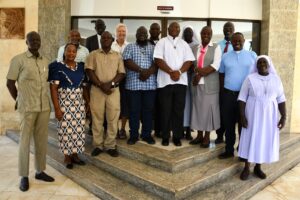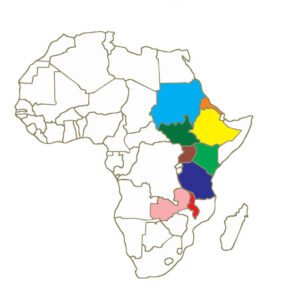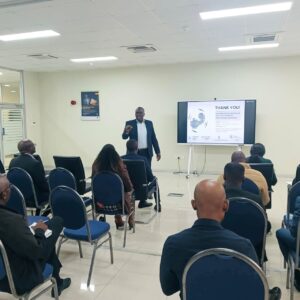UGANDA: Refugees and Host Communities to benefit from Food Security and Livelihoods programme

By Jacinta W. Odongo; Media Officer, Uganda Episcopal Conference
Starting this month of October 22, 2016, refugees and members of host community from Yumbe District in the Northern part of Uganda are set to benefit from Caritas Uganda for a one-year period. This is after receiving donor aid from its confederation members that will enhance food security and livelihoods.
Caritas Uganda, which is a department of the Uganda Episcopal Conference, in collaboration with Caritas Belgium and Irish Trocaire among other partners, have committed to assist 3000 newly arrived South Sudanese refugees and the host community that they are living in and around Bidibidi camp in Yumbe District. They will support them through food production and non-agricultural income generation. The South Sudanese refugees were forced to flee their country following resumption of war between forces loyal to President Salvar Kiir and rebel leader Riek Machar this year.
The Caritas Uganda Project Coordinator for the Refugee Emergency Response in Bidibidi Camp said that they will focus on food security and livelihoods without ignoring aspects such as health, nutrition, hygiene and environment.
“Malnutrition among the refugees remains high, particularly severe acute malnutrition, visible mainly among children below five. Yumbe District is well endowed with fertile soils, but the refugees do not have the farming implements and inputs for planting. Besides, every refugee received from the Ugandan Government a plot of land measuring 30mx30m for construction of shelter and gardening,” he said adding “It is for this reason that Caritas Uganda is planning for an intermediary response to provide targeted households with knowledge, skills and farming implements to produce food for themselves.”
He also noted that women and girls in both communities will be provided with reusable sanitary pads and the host communities will be provided tree seedlings, for both fruit and timber.
Out of the 3000 households, 2400 will be households from the refugee camp itself and 600 will be households from the host community in order to avoid conflict between the two groups. It is the policy of the Uganda Government that whatever support is given to the refugees 25 percent of it must go to the host communities.
In a bid to further comply with this rule and avoid tension between the refugees and host community,60 youth from the refugee community and 20 from the host community will be trained in various trades such as catering, tailoring, metal fabrication, agriculture and farming, motor vehicle mechanic, hair dressing and beauty. Caritas Uganda hopes that after the three months intensive training in the institutions within Northern Uganda the youth will become self-reliant,” he explained.
After the training the top 60 youth from the two communities will be awarded with start-up kits in every area of their specialization to help them set up a business, to become self-reliant and to strengthen their socio-economic resilience. The refugees will continue to receive relief food and other humanitarian support from Caritas Uganda and its partners, based on verified need.
He further explained that they will also organize the refugees in groups of 15-20 farmers, identify 10 Community Extension Workers (CEW) to act as everyday link between the beneficiaries and the emergency appeal by mobilizing the beneficiaries and providing basic agronomic support and post-harvest handling skills. Every group leader will elect one leading member to go for one-month training on agronomic practices (advanced level).
Caritas Belgium has procured the seeds and the agricultural tools to be used by the refugees and host community for this planting season. Both the seeds and tools were supplied and commissioned on Saturday, October 15.
Uganda currently hosts more than 480,000 refugees residing in nine rural settlements. These refugees rely heavily on external assistance. The time it takes for the refugees to achieve self-reliance depends on the duration of time spent in Uganda and access to productive land as well as the quality of their livelihoods.
∽End∽


